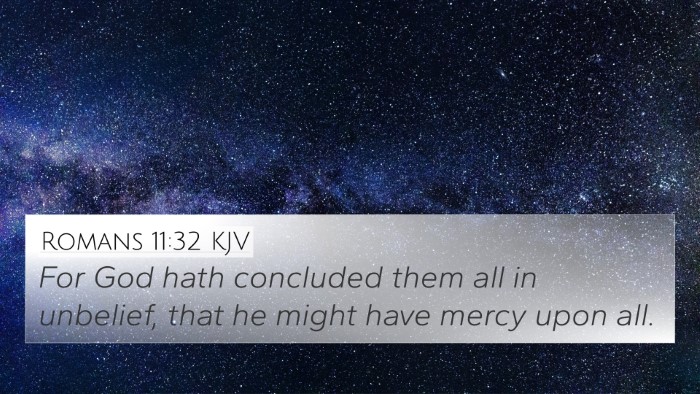Understanding Galatians 3:23
Bible Verse: Galatians 3:23 - "But before faith came, we were kept under the law, shut up unto the faith which should afterwards be revealed."
This verse is pivotal in understanding the transition from the Old Covenant of the Law to the New Covenant of faith in Christ. Various public domain commentaries provide rich insights into this verse's meaning, emphasizing its significance in the broader context of Pauline theology.
Summary of Meaning
In this passage, Paul addresses the purpose of the law before the coming of Christ. He indicates that the law functioned as a guide, demonstrating humanity’s need for a savior. Below are the key points derived from Matthew Henry, Albert Barnes, and Adam Clarke's commentaries.
- Purpose of the Law: The law acted as a guardian or tutor, revealing human sinfulness and pointing towards the ultimate necessity of faith in Christ. Matthew Henry notes that the law confines us, showing our inability to achieve righteousness on our own.
- Transition to Faith: Paul highlights a transition from the law to faith. The law kept us imprisoned, but with the revelation of faith in Christ, believers are made free. Albert Barnes emphasizes that faith is now the primary means of salvation, superseding the law.
- Anticipation of Christ: The phrase "shut up unto the faith" suggests that the law anticipated the coming of Christ. Adam Clarke elaborates that the law was never intended to be a permanent solution but a preparatory stage for the revelation of grace through Jesus.
Bible Cross-References
To deepen the understanding of Galatians 3:23, it is beneficial to explore these cross-references:
- Romans 7:6 - Speaks of being released from the law's grasp through Christ.
- Galatians 4:4-5 - Discusses the coming of Christ to redeem those under the law.
- Hebrews 10:1 - Affirms that the law was a shadow of good things to come.
- Romans 3:20 - States that through the law comes knowledge of sin.
- 2 Corinthians 3:7-9 - Contrasts the ministry of death (the law) with the ministry of the Spirit.
- Galatians 5:18 - Indicates that believers are led by the Spirit and not under the law.
- Acts 13:39 - Declares that through Jesus, all are freed from everything that the law could not justify.
- Matthew 5:17 - Jesus came not to abolish the law but to fulfill it.
- 1 Timothy 1:8-10 - Highlights the proper use of the law in relation to the just and unjust.
- Romans 5:20 - Where sin increased, grace abounded all the more, reflecting the transition from law to faith.
Connecting Biblical Themes
Thematic connections can be drawn between Galatians 3:23 and other scriptures that discuss the contrasts between law and grace, as well as how faith fulfills the requirements of the law. This inter-Biblical dialogue enhances understanding of God's redemptive plan over time.
Insights from Biblical Commentaries
-
Matthew Henry:
Henry frames the law as a necessary preparatory stage, stating that it highlights human inadequacies and thereby creates a longing for salvation that can only be met through faith.
-
Albert Barnes:
Barnes elaborates on the concept of ‘faith’ being the key to unlocking the promise of righteousness. He emphasizes that the coming of faith marks a significant shift in the relationship between God and humanity.
-
Adam Clarke:
Clarke interprets the metaphor of being "shut up" as a temporary confinement, suggesting that the law was useful and necessary, but always limited compared to the grace revealed in Christ.
Tools for Further Study
If you're keen on exploring more about cross-referencing and thematic connections, consider utilizing several resources:
- Comprehensive Bible concordance for identifying key terms and their occurrences.
- Cross-reference Bible study tools to investigate parallel scriptures efficiently.
- Bible chain reference systems to trace a theme throughout the scriptures.
- Bible reference resources for deeper contextual understanding.
Conclusion
In conclusion, Galatians 3:23 serves as a profound reminder of the transition from law to faith. By understanding this verse in conjunction with other relevant scriptures and insights from esteemed commentators, one can appreciate the depth of theological truth regarding grace and salvation that runs throughout the Bible.
















